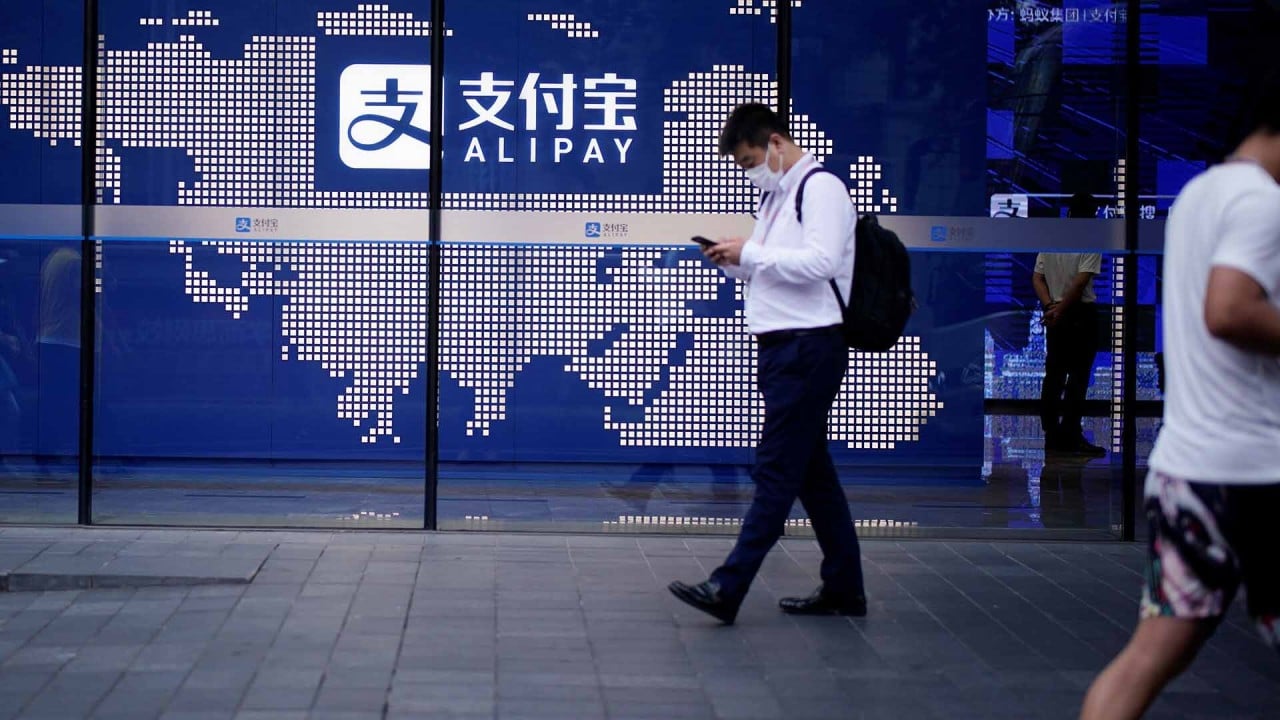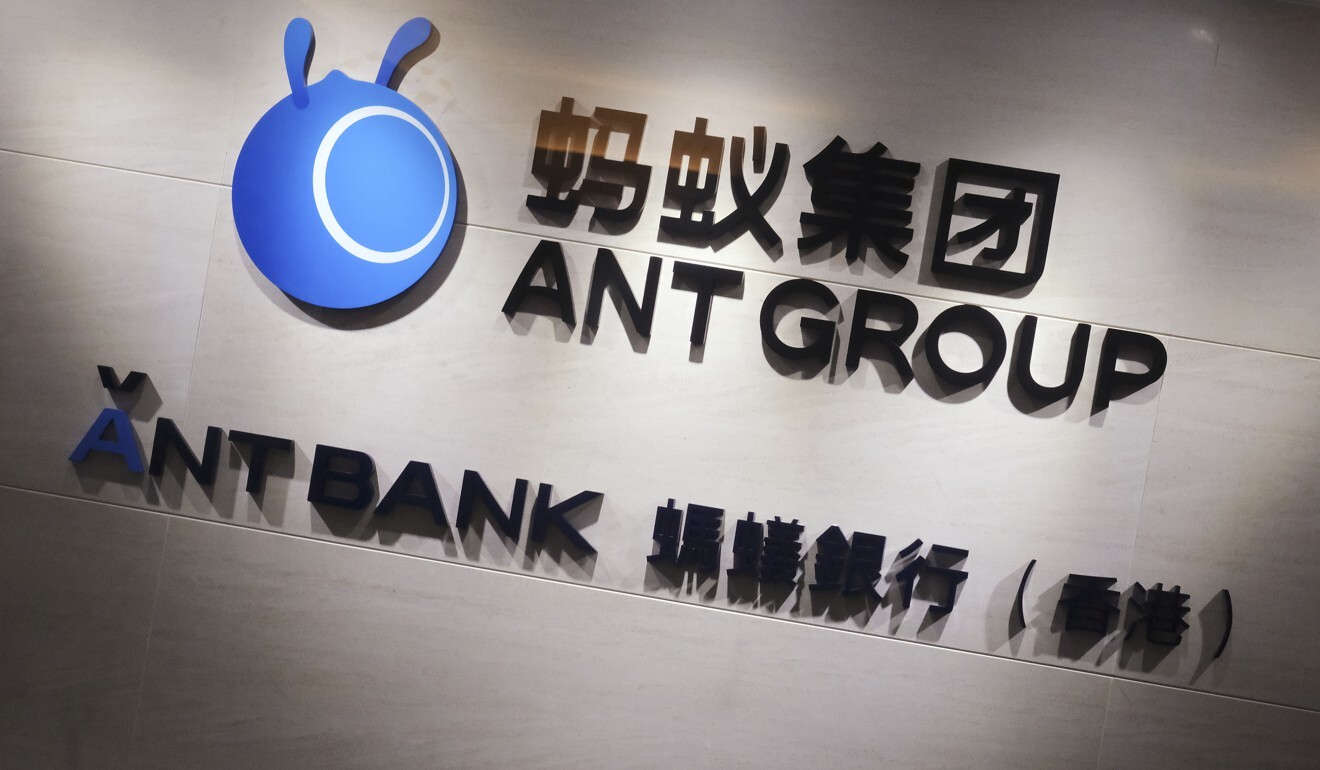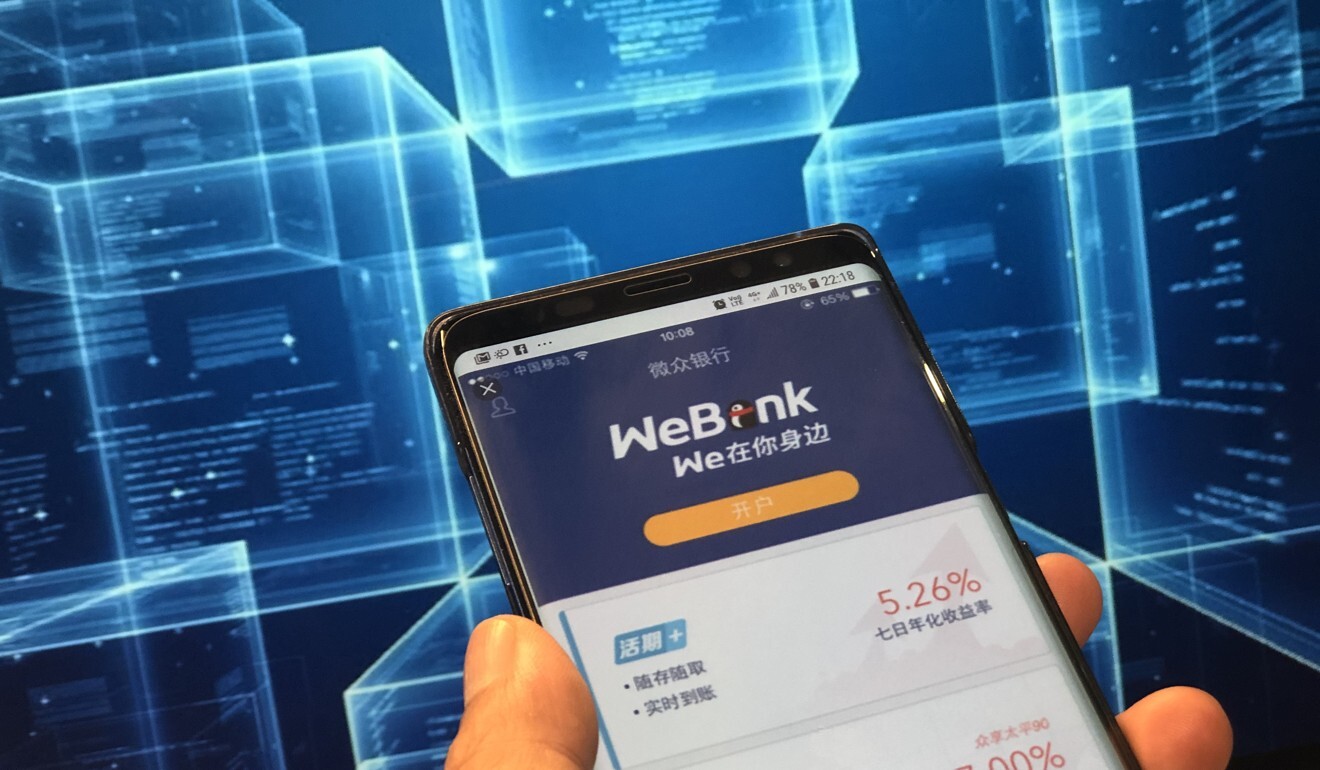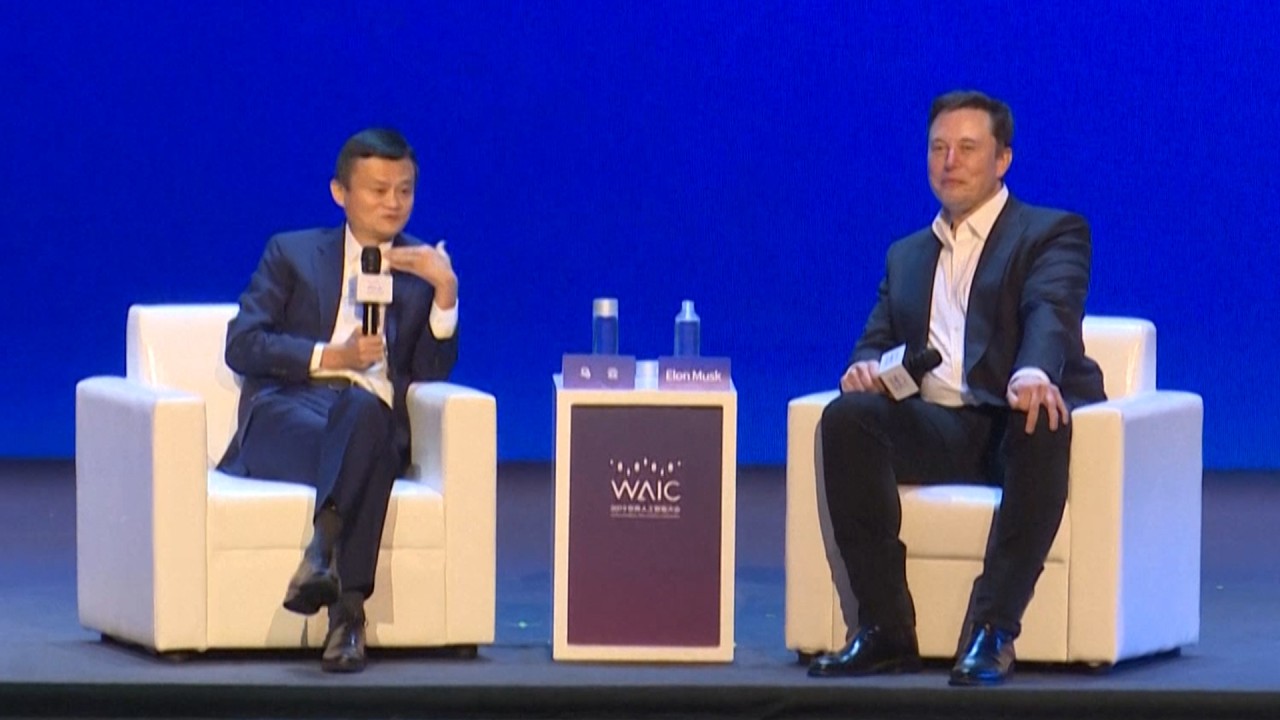
How AI and big data helped China’s tech giants dominate consumer finance
- China’s tech giants have the secret recipe that can improve the buying journey and they are applying this to consumer credit
- The aim is to build a much more accurate picture of a user’s credit profile by using a range of online data as opposed to traditional credit scoring
This is the second in a five-part series looking at China’s fintech industry in the wake of the decision by regulators to suspend the initial public offering of Ant Group, which was widely expected to be the world’s biggest capital raising.
China’s tech giants have become experts at using data and then parsing that information with algorithms to continue innovating and improving the customer experience.
Whether it is determining which country you most like to visit and what kind of food you like to eat when you get there, or what brand of shoes or perfume is your favourite when shopping online – China’s tech giants have the secret recipe that can improve your buying journey.
And some of them have been using that expertise to gobble up a bigger share of the consumer finance market – an industry that has always been on hand to fund impulse buys or bigger ticket items that people want to buy now and pay for later.
The AI model of Ant Group, an affiliate of Chinese e-commerce giant Alibaba Group Holding, whose mega IPO was recently put on hold by the country’s regulators, crunches a range of data points on a customer to better gauge risk for lenders, automatically setting credit scores for millions of users. Alibaba is the owner of the South China Morning Post.

03:04
What is Jack Ma’s Ant Group and how does it make money?
Ant has facilitated about 1.7 trillion yuan (US$258.4 billion) in consumer loans with an average 30-day delinquency rate of around 1 to 2 per cent before the pandemic hit, which is very competitive against the average delinquency rate at China’s big four banks.
The delinquency rate refers to the percentage of loans that are past due, indicating the quality of a lending company’s loan portfolio.
Putting the issue of regulation to one side – Ant’s IPO was stalled after China’s financial regulators drafted rules that clamp down on the booming microlending market in the world’s second-largest economy in the name of “stability” – there is no doubt that technology, and AI in particular, will continue to disrupt the financial services industry.
By using a risk control model containing more than 4,700 decision rules and 15,900 variable inputs, US-listed consumer finance platform LexinFintech Holdings, says it is able to keep delinquency rates below 2 per cent.
What is China’s social credit system and why is it controversial?
The aim is to build a much more accurate picture of a user’s credit profile by using a range of online data – as opposed to the typical credit profiling done by traditional banks.
Lexin also operates an online shopping centre known as Fenqile – meaning “happy instalments” in English – offering a range of products from mobile phones and computers to snacks and cosmetics, all of which can be funded by micro loans.
Lexin’s model will raise red flags, for example, if a user shares the same Wi-fi connection with a previous fraudulent user and will also flag instances where a user may buy an expensive product without reading the product profile or comparing it with similar models first.

The online inputs also include a user’s purchase habits on the e-commerce platform. For example, if a user bought a Huawei phone or iPhone on Fenqile, he or she is likely to be recognised as someone with relatively strong purchasing power. If someone buys a product on instalment at 2am, it is not a good sign.
“The consumer microlending business is about lending a small amount of money at high frequency, so the traditional manual credit system is very inefficient,” said Jay Xiao Wenjie, Chief Executive Officer at Lexin. “AI can greatly improve the operating efficiency of it, including credit scoring and other processes such as transactions and the collection of overdue payments.”
And it is this ability to parse data and more precisely gauge risk that is at the heart of the advantage tech companies have over traditional lenders.
China’s social credit system shows first signs of abuse, report says
“Take the consumers I meet everyday, I have no idea where they are, for me it’s just numbers, profile data, and tags … with such a huge number of customers, it is a game of chance,” said Richard Chen, who works in the risk control department of a Chengdu-based microlender.
“We don’t care much about whether a single consumer will pay the funds back, what we care about is the overall default percentage.”
China’s tech giants, including Alibaba and Tencent Holdings, have built an entire ecosystem around data. For example, the recommendation system on Alibaba’s e-commerce platform Taobao will recommend products to consumers based on their personal preferences, then a user can buy via Ant’s Alipay payment platform.
If the customer does not have enough free cash, they can use Ant’s Huabei, which works like a virtual credit card.

Tencent, which owns China’s popular social messaging app WeChat, also offers WeChat Pay for its 1.2 billion monthly daily active app users and is a major shareholder in internet bank WeBank. In March, Tencent rolled out “Fen Fu” – an embedded credit feature which also allows WeChat users to “buy now and pay later”.
In Ant’s case, the terms of the loan will be largely determined by Ant’s Zhima credit, a credit-scoring system based on a user’s digital footprint, including records from payment systems and even whether he or she returned a shared power bank on time.
If a consumer is willing to offer more personal information, such as their record of house purchases or even details of their professional LinkedIn profile, he or she can potentially get a higher score at Zhima Credit.
Lexin’s Xiao said that identifying these correlations [between different data sets] can help to lower risk and help prevent fraud.
“Birds of a feather flock together. Similar people usually have the same kind of risk – those correlations could include whether they visit similar apps and websites, or receive similar calls,” he said.
And tech companies currently gather more data on their users than almost any other industry – handing them a natural advantage.
“If they [tech companies] own the data, and don’t share it with others, of course it will be very powerful,” said Chen.

02:30
China’s ‘social credit system’ explained
“Many traditional banks are unwilling to do business with small companies [as their credit history is not good enough] … But if those companies go to WeBank, and they have used WeChat Pay to transact in the past and their record is good, WeBank will approve the loan,” said Chen.
This advantage and potential for ongoing disruption, has been noted by some academic studies.
“If digital footprints yield significant information about predicting defaults, then fintech firms – with their superior ability to access and process digital footprints – can threaten the information advantage of financial intermediaries and thereby challenge their business model,” a group of researchers said in a paper published last year in the academic journal The Review of Financial Studies.
“Our job is still to provide financial services, but technology is the tool,” said Victor Huike Li, Chief Executive Officer at Chinese fintech firm Pintec.
“Improving the algorithm is more about efficiency, but the quality of the data determines the upper limit of your machine learning performance,” said Li, whose company is working with China’s mobile service providers, such as China Mobile, to further improve the accuracy of its AI models.
However, Li said that fintech companies still need to make their technology understandable to regulators and that experimental “machine-driven” results that cannot be explained by a human must remain outside the financial industry for now.

03:02
Company aims to monetise China’s social credit system
Notwithstanding these concerns, China is applying AI and the data from “online footprints” to social policy on a wider scale.
Most of the data is gathered from traditional sources such as financial, criminal and government records, as well as existing data from registry offices. It may also involve third-party sources, such as online credit platforms like Ant’s Zhima Credit.
Why mobile payments missed out on the coronavirus boom in digital services
To be sure, there are ongoing concerns about user privacy – with some critics regarding social credit as an Orwellian concept – and the tendency of machines to follow the direction in which they are sent, relentlessly.
“The biggest challenge is that AI/ML only learns correlation, very, very well – oftentimes too well. Machines cannot think outside the box, they can only work on the data they have,” said He Zhiguo, a professor of finance at the University of Chicago Booth School of Business.
“So when an external shock like Covid hits, many of them no longer perform well.”

02:18
Face-off between Jack Ma and Elon Musk on AI in Shanghai
Ant’s 30-day delinquency rate on consumer loans increased to 2.97 per cent in July this year, compared to 1.76 per cent in January at the outset of the pandemic, according to data from its prospectus.
But user privacy remains the hot potato - particularly when it comes to regulation.
“I think one of the big problems of big data is over-collection,” said Chen Cheng, a fintech analyst at research platform 01zhiku, “For example, some borrowers may enter their [friends or family members’] contact information if they fail to pay on time - meaning those people may receive the overdue collection call. But they actually have no connection with the microlending.”
Meanwhile, Wang Yanqing, a postgraduate student who lives in Chongqing and who uses Ant’s Huabei every day, has lingering concerns about privacy.
“I have no idea how it [the collection of data] works … I know very little about it and I’m afraid it may become uncontrollable,” Wang said, “I know they may write about it [data protection] in the privacy policy or in the contract, but most people don’t read it.”

China unveiled its draft personal information protection law last month, a significant move to regulate the collection and usage of personal data. The draft said those who violate the law would face a fine of up to 50 million yuan or 5 per cent of company revenue in the past year.
This means that fintech companies will have to figure out how to access enough data to improve their model while at the same time, protecting consumer privacy. Better regulation should help these innovators to get there though.
Pintec’s Li said creating a system that allows companies to exchange data in a safe and private environment would be helpful in future.
“On many occasions companies will not exchange data openly because we see each other as competitors,” said Li. “The technology development we need is not just the algorithm, it’s the ecosystem and a relationship based on trust and cooperation.”
Additional reporting by Masha Borak







